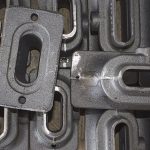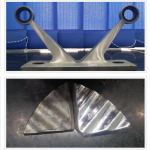An Introduction to Cast Iron and Its Types
Cast Iron is ferrous, made by re-melting pig iron in a cupola furnace. It is a versatile metal containing iron with more than 2% carbon. Cast iron is used for a wide range of consumer and commercial applications. It keeps the potential of creating quality welds and is highly versatile in nature. You can make top-grade products by approaching a reputable alloy cast iron casting manufacturer.
What is Cast Iron?
Cast Iron is an alloy that contains 2-4% carbon and small amounts of manganese and silicon. This conglomeration of elements often makes the metal difficult to mould. The iron in this alloy makes it prone to cracking. However, if you use wrought iron, you can easily mould it into various shapes. Cast iron is malleable, and the casters add alloying elements to the furnace based on the application.
How is Cast Iron Classified?
The microstructure of the cast iron varies based on the alloying elements. Further, the same is determined by the solidification of cast iron and the use of heating elements. You can classify iron casting into the following –
• White Cast Iron
This is a type of cast iron worth mentioning. It is off white in colour caused by iron compounds like cementite. When you fracture the white cast iron, minor cracks are noticeable due to carbide impurities. This cast iron is hard but brittle. It has a low melting point and less silicone content. The carbon present in the metal precipitates to form larger particles, and increases its hardness. It is cost-effective and resistant to abrasion. You can utilise it for various applications like shell liners, lifter bars, pump surfaces etc.
• Gray Cast Iron
Gray cast iron features a graphite microstructure containing smaller fractures. The name is so because of the grey colour caused by these fractures. While producing gray cast iron, the fractures open up to reveal this colour underneath the surface. It is not as strong as steel; however, it can absorb a similar range of shock. It has high compressive strength as steel which makes it a preferred choice for casting purposes.
• Ductile Cast Iron
Also known as nodular cast iron, it is a soft, ductile alloy with a higher quantity of carbon. It has small traces of other compounds, like cerium and magnesium. This acquires the speed at which graphite grows and keeps the metal soft. Ductile cast iron is resistant to wear and damage even from strong impact. However, the absence of flakes makes them more resistant to injury.
Get in touch with the experts at Huston India Private Limited for high-quality alloy iron casting. Visit the website to know more.




